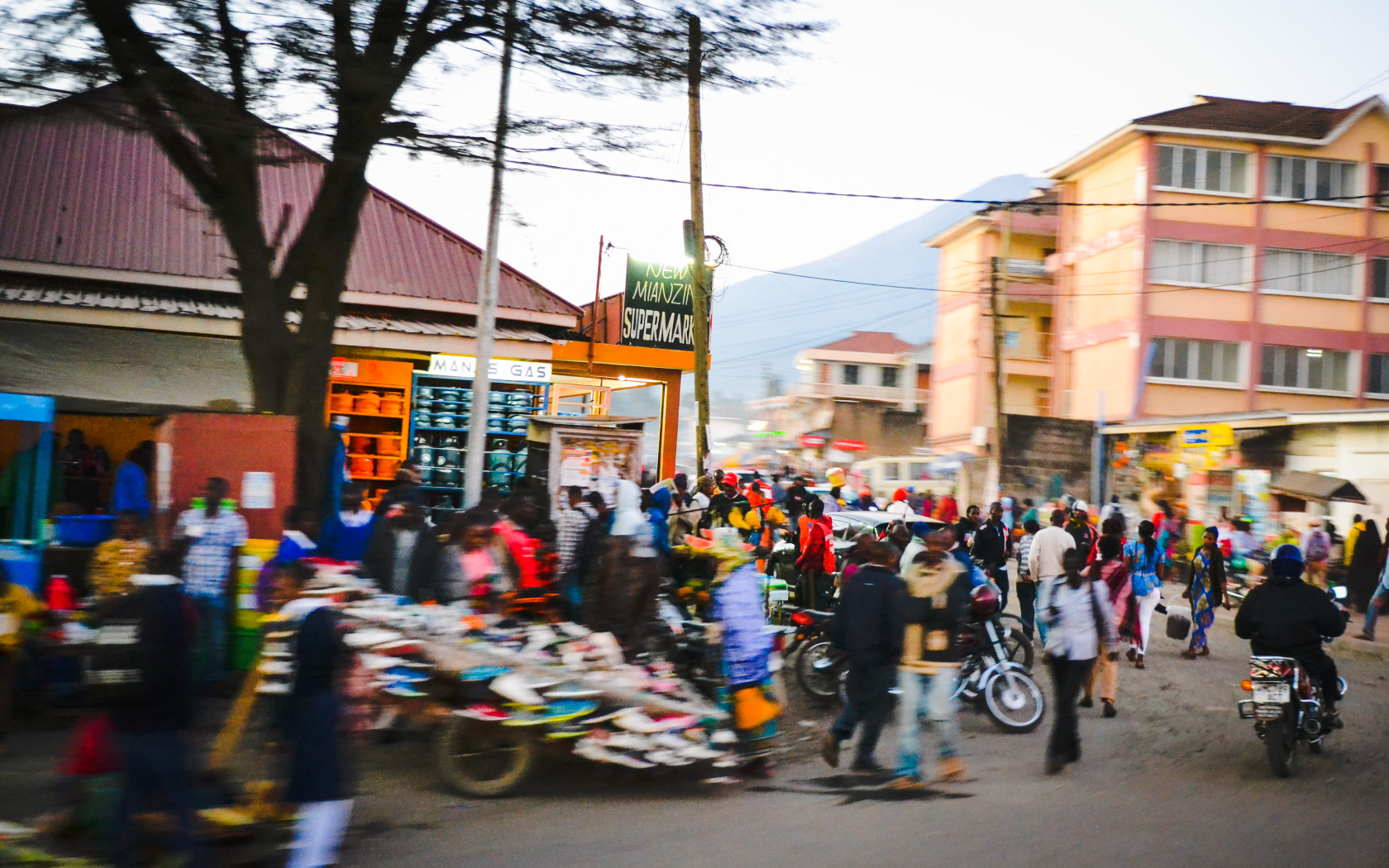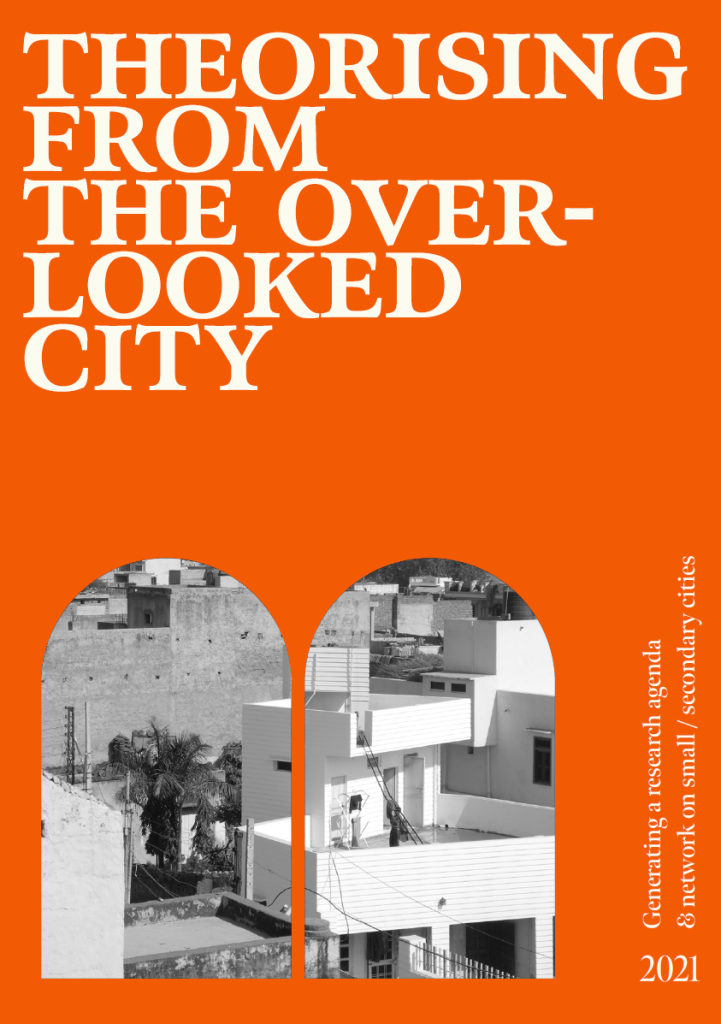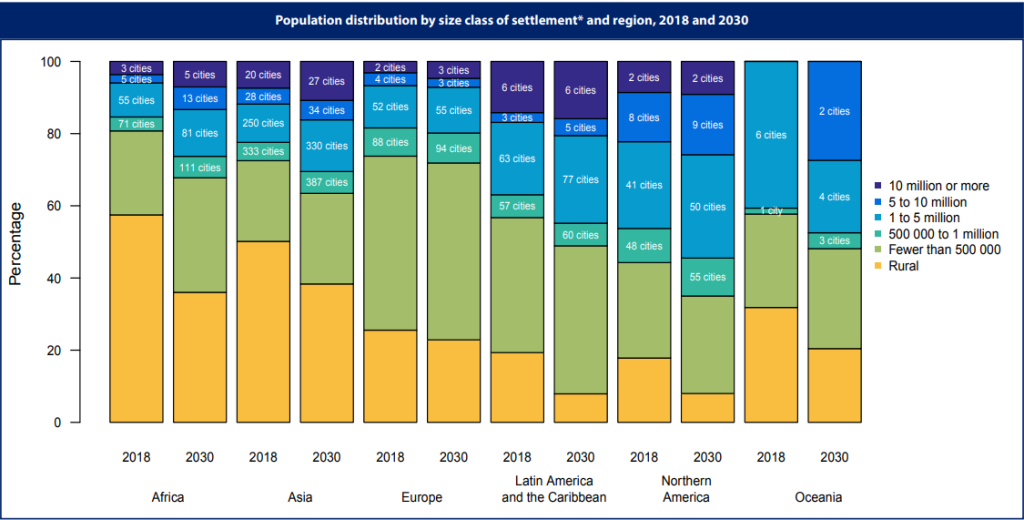
- Date
- 15th November 2021
- Categories
By Dr. Joni Cook (Loughborough University)
A nuanced, conceptual approach to exploring how the MECS narrative and approaches could integrate into a research agenda for advancing access to modern energy cooking in smaller, overlooked cities is taken in an article (p. 94-107) by Dr. Martin Price (Gamos Ltd.) published in ‘Theorising from the Overlooked City’ digital magazine (Fig. 1). This blog offers an introduction to overlooked cities and the clean cooking challenge, and summarises the article’s key recommendations.

The world’s cities and other urban settlements are growing in both size and number, with urbanisation increasing most rapidly in the global South. As of 2015, more than 75% of the world’s urban population lives in the global South and it is projected that by 2025, the urban population of the global South will be 3.75 billion, representing 54.3% of the total population of the global South. To date, the limelight of the clean cooking sector and development practitioners more broadly has predominantly centred on slums of global South megacities such as Lagos and Mumbai, or, from a donor perspective, on major cities which have a rapidly growing urban consumer class, such as Nairobi. The latter are often considered ‘low hanging fruit’ in terms of development priorities, as they tend to be already aligned to development objectives. This has led to populations living in other urban settings, but neither in megacity slums nor affluent neighbourhoods, being frequently overlooked. These ‘overlooked cities’ of less than 500,000 inhabitants include regional cities, small/secondary cities, rural towns and towns situated in mountainous regions, dry zones and delta zones.

Advancing access to modern energy cooking services in overlooked cities is critical in order to meet the United Nation’s Sustainable Development Goal 7, access to affordable, reliable, sustainable and modern energy for all. By 2030, 40% of the total population in Africa (35% in Asia) is expected to be living in towns and cities of less than 500,000 inhabitants (Fig. 2). However, as the article emphasises “in contrast to urban experiences elsewhere, urbanisation in much of sub-Saharan Africa is associated with a reduction in energy consumption, thus presenting a challenge to the urbanisation-as-development thesis”. So how can the clean cooking sector scale socially just, equitable transitions to modern energy cooking for the energy impoverished residing in overlooked cities? The author argues that the main shortcoming of approaches to date is a simplistic understanding of urban life, in particular the partiality of developmentalism such as viewing populations through a binary lens of rural/urban, and that the complexities of cooking transitions in specific urban contexts should be considered. The author highlights ‘the need to understand cooking as an ‘assemblage’ – comprised of energy, food, skills and objects, and reflecting socio-economic circumstances, cultural and social norms, and policy and institutional environments’, and emphasises that a flexible, unbiased approach should be taken to defining the ‘urban’. Examples of these complexities include people’s individual and familial circumstances, their struggles and aspirations, and how these relate to the urban experience more broadly, as well as the political economy and power dynamics of the city.
The author proposes that integrating a MECS approach into research agendas for advancing clean cooking transitions in overlooked cities is required to deepen ‘understanding of assumptions that inform existing development strategies and practices in different urban contexts, and to use critical urban scholarship to demonstrate to practitioners that cooking is a complex and embodied practice, connected to the conditions of contemporary urban life’. The MECS approach advocates a participatory approach to new data collection in the context of overlooked cities, along with inventory collecting of clean cooking practices, in order to deepen this understanding. This would involve working closely with a wide range of actors, particularly local stakeholders and communities. We hope that these approaches will lead to individual, tailored clean cooking solutions for each city, and the activities of the MECS programme will reach these overlooked cities. This work would contribute to ongoing activities of the urban workstream of the MECS programme (read more in the working paper and executive summary), which plans to provide renewed impetus to engage with a wider range of city governments and community leaders, to ensure theories of transition and implementation strategies are tailored to local environments. The workstream focuses on a diversity of urban contexts – both in terms of urban political economies and urban population groups – as recognition that ‘urban’ and ‘rural’ classifications are limited in their ability to capture the realities of transition. Furthermore, the urban workstream will engage new areas of enquiry, and commission much-needed research on matters of repair, maintenance and waste, as they relate to modern energy cooking transitions. This will help the MECS programme achieve its goal not only in facilitating the transition of modern energy cooking services across the global South, but to do so in ways that are environmentally responsible, equitable and socially just that leave no-one behind.
………………………………………..
Featured image: Piqsels.